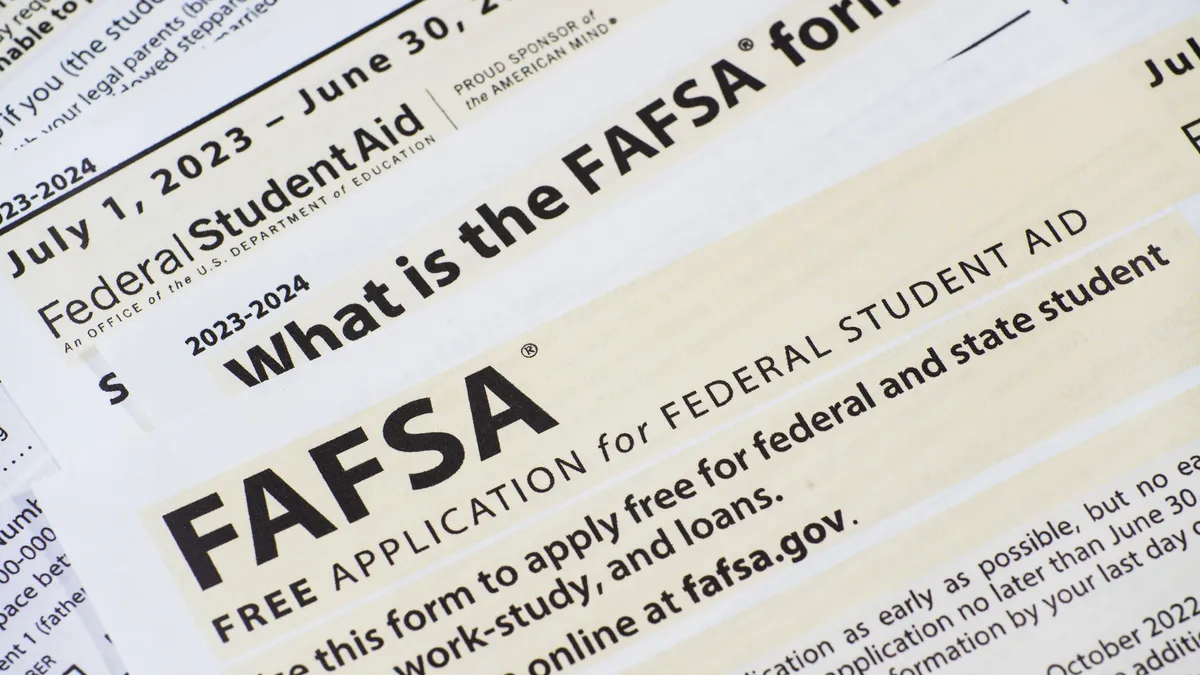Dive Brief:
- Although students who have a college mentor demonstrate greater academic achievement, career development and well-being, only 25% of responding college graduates said they "strongly agree" they had a mentor who encouraged them to go after their goals, according to the 2018 Strada-Gallup Alumni Survey, which polled 5,100 U.S. college graduates in 2018.
- Nearly two-thirds (64%) of recent graduates who agreed or strongly agreed they had a mentor said that person was a professor, though there were differences among students from different backgrounds. About three-quarters (72%) of white students said their mentor was a professor, compared to 47% of minority students and 61% of first-generation students.
- Just over 40% of students said they strongly agree they were challenged academically in college, and those who were challenged were 2.4 times more likely to say their education was worth the cost. College professors play a critical role in providing academic rigor, with 69% of respondents who indicated they strongly agree their professors cared about them also strongly agreeing they were academically challenged.
Dive Insight:
With the value of higher education increasingly being questioned and just one-third of surveyed college students reporting they will have the skills needed to succeed in the workplace when they graduate, improving students perceptions about their college experience can be critical for an institution's success. The Strada-Gallup report notes professor mentors can be helpful in boosting students' academic achievement and increasing their sense of self-confidence.
Although career-focused discussions between students and faculty or staff can be beneficial, two-thirds of respondents reported they rarely or never had these type interactions outside of a university career center. However, 49% of students found career advice from staff and faculty members helpful, compared to only 30% who found the career services office helpful.
To foster more of these types of interactions between professors and students, the report suggests colleges consider creating incentives for faculty to spend time discussing career opportunities with their students or incorporating those conversations in their curricula, instead of expanding a central career services center. This could be particularly beneficial to minority students, who are less likely to feel a sense of belonging on campus and more likely to have difficulties establishing informal relationships with their professors, the report notes.
To improve student outcomes for first-generation, minority and low-income students, colleges have increasingly looked to mentorship and coaching programs. The University of California, San Diego, for example, launched a mentorship program that links first-generation college students with peer and professional "coaches," which has lead to increased rates of student satisfaction and higher grades for those participating. Similarly, Ivy Tech Community College raised its retention rates from roughly 40% to 50% over a three-year period after pairing low-income students with a remote coach who helped them navigate their first year on campus.
And at the University of Maryland, Baltimore County, more black undergraduates go on to complete M.D-Ph.D. programs, which are research-oriented, than undergraduates from any other university in the nation, which the institution credits in part to its Meyerhoff Scholars Program. The effort aims to increase diversity in STEM through 13 critical components that include pairing students with a local industry mentor, involving an advisor with academic planning and creating a social support system for participants.







